At this page you will find resources designed to be helpful for those within the rare disease community. The resources on this page were curated to be useful for: individuals affected by rare disease, family members, advocacy organizations, patient support groups, clinicians, and healthcare providers. Neither the NIGMS Repository nor the Coriell Institute for Medical Research are affiliated in any formal capacity with these organizations.
Click to jump to see resources for:
--Umbrella Organizations
--Registries
--Rare Disease Information
--Organizations
--Educational Resources
 National Organization for Rare Disorders (NORD)
National Organization for Rare Disorders (NORD) This non-profit organization is a patient advocacy organization dedicated to individuals with rare diseases and the organizations that serve them. NORD, along with its more than 300 patient organization members, is committed to the identification, treatment, and cure of rare disorders through programs of education, advocacy, research, and patient services.

Global Genes provides hope for the more than 400 million people affected by rare disease around the globe. We fulfill our mission by helping patients find and build communities, gain access to information and resources, connect to researchers, clinicians, industry, government, and other stakeholders, share data and experiences, stand up, stand out, and become effective advocates on their own behalf.

Our mission is to advance medical research on rare diseases by providing support for clinical studies and facilitating collaboration, study enrollment and data sharing. Through the RDCRN rare diseases research groups (consortia), researchers and their teams work together with patient organizations (patient advocacy groups) to study nearly 200 rare diseases at clinical centers across the nation and worldwide. This is an initiative of the Office of Rare Diseases Research (ORDR), National Center for Advancing Translational Sciences (NCATS).
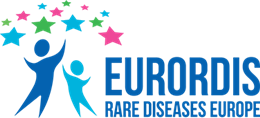
EURORDIS-Rare Diseases Europe is a unique, non-profit alliance of 962 rare disease patient organizations from 73 countries that work together to improve the lives of the 30 million people living with a rare disease in Europe. By connecting patients, families and patient groups, as well as by bringing together all stakeholders and mobilizing the rare disease community, EURORDIS strengthens the patient voice and shapes research, policies and patient services. EURORDIS seeks to improve the quality of life of people living with rare diseases in Europe through advocacy at the European level, support for research and medicines development, facilitating networking amongst patient groups, raising awareness, and many other actions designed to reduce the impact of rare diseases on the lives of patients and family.
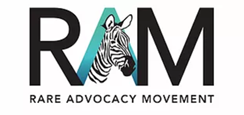
The first community-based network of professionals dedicated to protecting the interests of the global community of people living with rare conditions and their careers. RAM is dedicated to establishing a unified rare disease ecosystem of community-based and community-focused stakeholders working together to bring therapeutics to the community through sustainable community-based programs, equitably accessible resources and inclusive opportunities (i.e RAM Collaborations). RAM is committed to transparency, the correction of inaccurate biases and the removal of bottlenecks from the rare disease ecosystem. The global rare community's voice has unified to demand respect and to be treated as equally valuable stakeholders. As a result, RAM's network is collaborating with trusted industry stakeholders to streamline the therapeutic development process through real world community-based insights.

Black Women’s Health Imperative launched the Rare Disease Diversity Coalition to address the extraordinary challenges faced by rare disease patients of color. The Coalition brings together rare disease experts, health and diversity advocates, and industry leaders to identify and advocate for evidence-based solutions to alleviate the disproportionate burden of rare diseases on communities of color.
The Rare Disease Diversity Coalition is focused on reducing racial disparities in the rare disease community. The Coalition’s work is led by BWHI and a leadership steering committee comprised of advocacy, community, and industry leaders with the following goals:
● Reduce racial disparities in the rare disease community
● Identify and advocate for evidence-based solutions to alleviate the disproportionate burden of rare diseases on communities of color
● Help achieve greater equality within the rare disease community
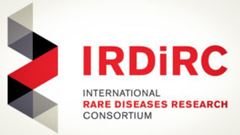
The International Rare Diseases Research Consortium (IRDiRC) unites national and international governmental and non-profit funding bodies, companies (including pharmaceutical and biotech enterprises), umbrella patient advocacy organizations, and scientific researchers to promote international collaboration and advance rare diseases research worldwide. Importantly, the coverage of the Consortium is global and involves stakeholders from Africa, Asia, Australia, North America, and Europe.
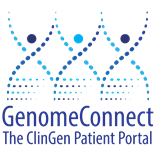
An online patient registry where individuals can securely share their genetic and health information. This information can be used by researchers and healthcare providers to better understand the relationship between genetics and health, and to ultimately improve care for future patients. GenomeConnect also gives participants the option to connect with others with similar genetic test results or diagnoses, learn about additional research opportunities, and receive updates about their genetic test results.

RaDaR provides step-by-step guidance and tools for building registries based on good data practices. The Rare Diseases Registry Program (RaDaR) website was created to provide advice on setting up and maintaining good-quality registries for rare diseases to stimulate research. RaDaR enables collaborative sharing of information and tools to promote data standardization and integration from the earliest stages of registry development.
NORD has created a Natural Histories Patient Registry Platform, with extensive input from FDA, NIH, patients, organizations and experts in the field.
NORD’s platform is an easy to use system that allows patients and organizations to inform and shape medical research and translational science for rare diseases by launching high-quality, customized registries to collect the data needed to define the natural progression of their disease – ultimately advancing product development.
NORD’s RareLaunch® Forming a Foundation program provides education, training and support for patients to start nonprofits; for those involved in nonprofits, the program also builds capacity and implements good governance practices to ensure their development is sustainable. Recorded Workshops; Resources
NORD’s Rare Disease Database provides brief introductions for patients and caregivers to specific rare diseases. Available information includes summaries, signs & symptoms, causes, affected populations, related disorders, diagnosis, and available therapies.
The purpose of the NORD Online Physician Guides is to provide a resource for clinicians about specific rare disorders to facilitate the timely diagnosis and treatment of their patients. Family physicians, pediatricians and other primary care providers play an important role in early identification and long-term management of patients with rare diseases. It is important for specialist and generalist alike to remain as current as possible in awareness of rare medical conditions.

GARD provides the public with access to current, reliable, and easy to understand information about rare or genetic diseases in English or Spanish. The Genetic and Rare Diseases Information Center (GARD) is a program of the National Center for Advancing Translational Sciences (NCATS) and is funded by two parts of the National Institutes of Health (NIH): NCATS and the National Human Genome Research Institute (NHGRI). Resources for Patients, Families, and FriendsResources for Healthcare Professionals; Resources for Researchers
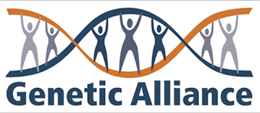
Genetic Alliance engages individuals, families and communities to transform health. This requires that we as an organization understand what it means to transform systems, dissolve boundaries, create and sustain open space, and promote the process of openness. The work is focused to convene powerful networks, deliver actionable information, build intuitive tools, and drive policy decisions.
Established to provide organizations and resources for patients and families affected by rare diseases. Organizations can be included in the ODB if they provide free information and/or services helpful to individuals and families affected by one or more rare diseases; have a website; are non-commercial; are transparent regarding sponsors or sources of funding; and are transparent regarding sources and/or reviewers of medical information provided on their websites and/or publications.
Partnering with various consortia and patient advocacy groups, RDCRN provides information on current research studies on various rare diseases.
Patient Advocacy Groups (PAGs) are organizations that promote the needs and priorities of patients. This could include supporting research for a specific disease, promoting awareness of a disease, and educating the community about a disease, among other activities. Most patient advocacy groups represent one or a few specific diseases.

Hosted by trusted patient advocates, RareConnect is a place where rare disease patients can connect with others globally. RareConnect is a safe environment where privacy is respected and where trusted information is shared via real patient representatives. RareConnect is a patient-led initiative. Patient organizations partner with RareConnect, itself an international patient organization, to create communities and provide moderators from within their network. The project is a joint collaboration between EURORDIS (European Rare Disease Organization) and NORD (National Organization for Rare Disorders).

The Rare Disease Foundation is on a mission to find cures and treatments through its innovative patient-centric approach to research. The Rare Disease Foundation’s mission is to transform the lives of Canadians and global citizens living with a rare disease by revolutionizing awareness, developing innovative cures through our microgrant programs, research programs, and providing resources through community and clinical support channels. Resource- Living Without a Diagnosis
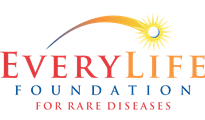
The EveryLife Foundation for Rare Diseases is a 501(c)(3) nonprofit, nonpartisan organization dedicated to empowering the rare disease patient community to advocate for impactful, science-driven legislation and policy that advances the equitable development of and access to lifesaving diagnoses, treatments and cures.
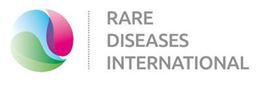
Mission is to unite, expand and reinforce the rare disease movement of patient organizations and patient advocates. They put rare diseases on the agenda of international organizations and multilateral institutions such as the United Nations, ECOSOC and the WHO, and on the national agenda of every country around the world. The goal is to strengthen rare disease patient groups capacity to act at local, national, regional and global levels and to interact with other rare disease groups.

Takes place on the last day of February each year. The main objective of Rare Disease Day is to raise awareness amongst the general public and decision-makers about rare diseases and their impact on patients’ lives.
Provides patients and caregivers with educational videos, free webinars, fact sheets, infographics and other helpful materials to guide you on your journey with a rare disease.
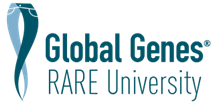
Dedicated to providing trusted and relevant education, training, tools, and resources you need to make an impact in the Rare disease community. All courses are free and designed with you in mind. From basic to complex, Rare University offers robust content on a variety of the most desired topics in rare disease, including capacity building, family and genetics, cell and gene medicine, and how to advocate for the rare disease community. Course Catalog

The online Advocacy ATLAS is a toolkit created by Genetic Alliance, Parent to Parent USA, and Family Voices that provides individuals with special healthcare needs and their families with tools and strategies to advocate for whatever they may need. Every day individuals advocate on behalf of themselves or others to communicate needs, share experiences, and take steps to get what they want and need. Resources are grouped by category on the Advocacy ATLAS landing page.
RDLA and the EveryLife Foundation for Rare Diseases is committed to empowering ALL rare disease patients through advocacy and to create pathways for underserved communities to engage in policy change, clinical trials, and the drug development process. With over 7,000 unique, rare diseases recognized in the United States, patients often experience a long journey to receive their diagnosis. For patients who are also members of underserved communities, they may face increased barriers to care and inclusion in their diagnosis throughout the diagnostic odyssey. Through this hub, we are committed to providing resources and aid to empower not only yourself, but your community.